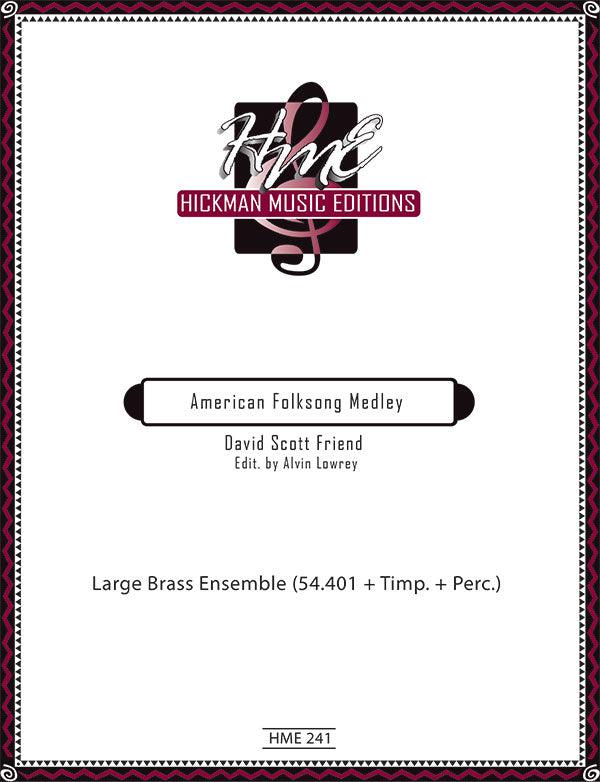American Folk Song Medley for Large Brass Ensemble
American Folk Song Medley for Large Brass Ensemble
SKU:HME241P
Couldn't load pickup availability
American Folksong Medley (originally titled American Medley for Concert Brass Choir) was commissioned in 1964 by the University of Kansas Brass Choir to be featured during a goodwill tour of Southeast Asia sponsored by the US Department of State's Cultural Presentations Program. Led by Kenneth G. Bloomquist (1931-2021), the ensemble performed 85 concerts in 96 days throughout Okinawa, Ceylon (now Sri Lanka), Laos, Malaysia, Singapore, Indonesia, Australia, Hong Kong, and Thailand. Ann Bloomquist (wife of Mr. Bloomquist) sang the national anthem of each country in native languages, as well as the American national anthem, and local folksongs arranged for the ensemble. Friend's medley is scored for 5 B-flat trumpets, 4 horns, 3 tenor trombones, bass trombone, tuba, string bass, timpani, and percussion.
Four well-known folksongs are incorporated in Friend's American Folksong Medley. "Shenandoah" is a sea shanty from the mid-1800s, perhaps first sung by canoe-going fur traders on the Missouri River. The tune "John Henry" is about a former slave who worked after the Civil War building railroad tunnels. When the steam-drill threatened to take away jobs from many of the workers, Henry challenged the machine to a drilling contest, during which he lost his life. "Simetimes I Feel Like a Motherless Child" is a traditional Negro spiritual, depicting the pain and despair of a child who has been stolen away from his or her slave parents. "Streets of Laredo" (also known as "The Dying Cowboy") is a famous American cowboy ballad about a man who lost a gunfight, and dying from a bullet to the chest, tells his sad story to the corpse of a man who also lies in the street.
David Scott Friend (1928-1991) was born in Bloomington, Indiana, and attended Indiana University as a music major where he studied trumpet with William Adam. After graduating in 1954, he served in the armed forces during the Korean crisis as a member of the Counterintelligence Corps, and also served from 1955-56 with the State Department as an investigator and interpreter with the McCarran Act in Munich, Germany. He then earned a master's degree in library science at Florida State University in 1959 while working as the fine arts director at the Topeka (KS) Public Library (1958 to 1965). From 1965 to 1967, he was director of the Frankfort Public Library system. In addition, Friend was a fine jazz pianist and arranger who briefly taught music theory at Idaho State University in Pocatello.
Share

